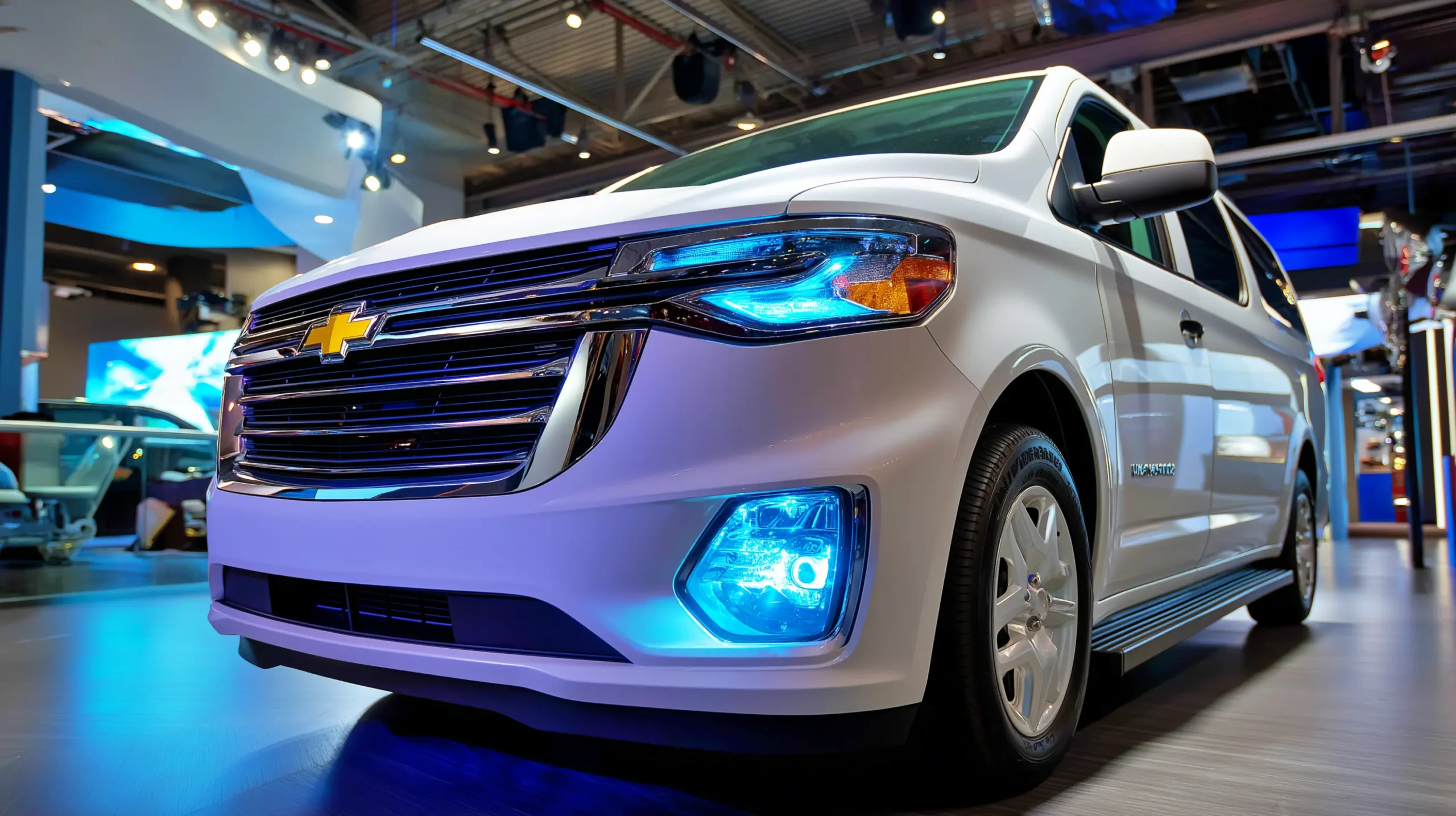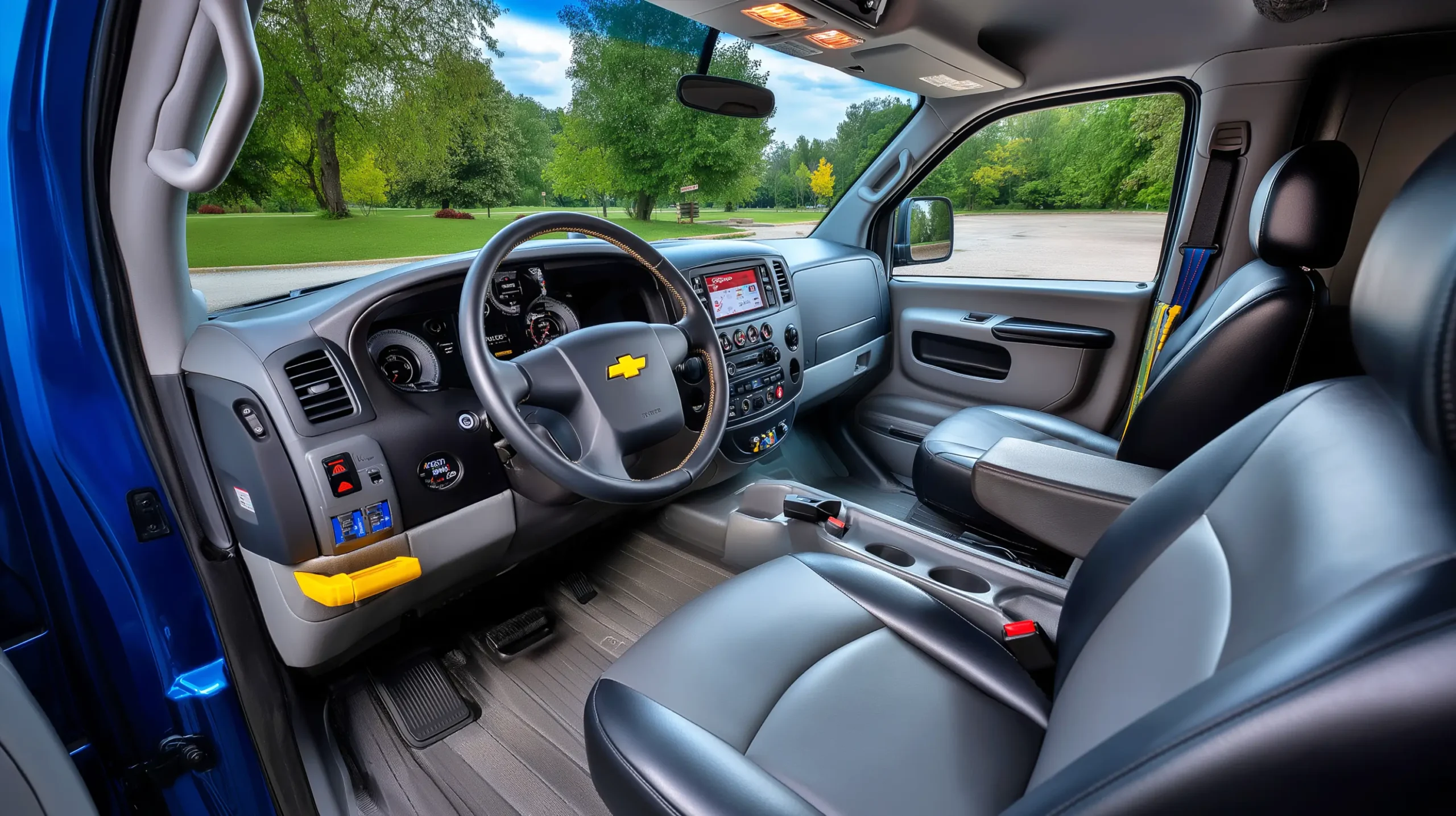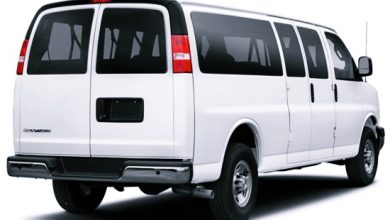2026 Chevy Express Van Preview: What to Expect from the Next-Gen Workhorse
2026 Chevy Express Van
For decades, the Chevrolet Express (and its GMC Savana sibling) has been the undisputed heavyweight champion of old-school, body-on-frame work vans.
It’s the vehicular equivalent of a trusty hammer: simple, durable, and built to take a beating day in and day out.
Plumbers, electricians, delivery drivers, shuttle services, and countless other trades have relied on its straightforward capability and cavernous interior.

But let’s face it: while updated over the years, the core design traces its roots back to the mid-1990s.
In a rapidly embracing electrification, advanced driver assists, and sophisticated infotainment, the Express feels decidedly… vintage.
This brings us to the million-dollar question (or perhaps the $50,000-$60,000 question, depending on configuration):
What’s next? Specifically, what can we realistically expect from a2026 Chevrolet Express Van? The rumor mill has been churning, offering conflicting visions for this workhorse’s future, leaving potential buyers and fleet managers navigating a fog of speculation.
Will 2026 finally bring the revolutionary redesign many feel is overdue, or will Chevy let its reliable cash cow soldier on a bit longer?
The Electrifying Rumor: A Bold Leap Forward?
Back in late 2022, reports surfaced suggesting General Motors was planning a significant shake-up.
The narrative was that the internal combustion engine (ICE) powered Express and Savana would cease production after the 2025 model year, making way for anall-new, all-electric successor for 2026.
This hypothetical e-Express would reportedly leverage GM’s cutting-edge Ultium battery platform – the same architecture underpinning vehicles like the Hummer EV, Silverado EV, and the BrightDrop Zevo electric delivery vans.
An electric Express held immense appeal. Imagine the potential benefits for fleet operators: drastically reduced fuel costs, lower maintenance (no oil changes, fewer moving parts), zero tailpipe emissions (crucial for companies with ESG goals or operating in emissions-restricted zones), and quiet operation.
Given GM already produces the BrightDrop Zevo for large fleet customers like FedEx, transitioning the Express to Ultium seemed like a logical, almost inevitable, next step to compete directly with the Ford E-Transit and the electric offerings from Mercedes-Benz and Ram.
The prospect had the industry buzzing – was the dependable-but-dated Express finally getting a 21st-century makeover?
Plot Twist: Have EV Plans Been Shelved?
Just as the industry began picturing fleets of silent, efficient e-Express vans hitting the streets, a contrasting report emerged in early 2024.
Citing unnamed sources, publications suggested GM might havecanceled or significantly delayed the plans for an all-electric Express replacement around 2026.
Why the potential change of heart? The market landscape has shifted. While EV adoption continues, the pace hasn’t met some initial projections, and challenges remain around charging infrastructure and upfront costs.
Furthermore, GM publicly announced a strategic pivot: reintroducing Plug-in Hybrid Electric Vehicles (PHEVs) into its North American lineup – a technology it had previously planned to largely skip in favor of a direct jump to full EVs.
This shift, aimed at meeting stricter emissions standards while addressing consumer range anxiety, could mean a PHEV Express is now on the table, or perhaps GM sees continued value in extending the life of the existing ICE model, maybe with some targeted updates.
What If It’s (Mostly) Business as Usual for 2026?
If the cancellation rumors are true, or if a full redesign is pushed further down the road, what would a carryover 2026 Express look like? Essentially, it would likely mirror the current 2025 model – a known quantity that, despite its age, still offers compelling value for many.
- Proven Powertrains: The heart of the current Express lies in its robust, traditional engines. The standard offering is the workhorse 4.3-liter V6, producing a respectable 276 horsepower and 298 lb-ft of torque. The optional 6.6-liter V8 belches out 401 horsepower and a massive 464 lb-ft of torque for those needing serious grunt. Both engines are paired with competent 8-speed automatic transmissions, sending power exclusively to the rear wheels. This combination delivers substantial payload capacity (up to 4,280 pounds on a 3500 Cargo model) and impressive towing capability (up to 9,600 pounds with the V8).
- Unmatched Versatility: The Express remains a champion of configuration. Available in Cargo, Passenger (with seating for up to 15), and Cutaway chassis variants, and offered in standard (135-inch) and extended (155-inch) wheelbases, it provides a blank canvas for countless commercialupfits.From mobile workshops to shuttle buses,its body-on-frame construction makes customization relatively straightforward.
- Function Over Form Interior: Nobody buys an Express for a luxurious cabin. It’s built for durability and practicality, with hard plastics and straightforward controls designed to withstand years of commercial abuse.While it lacksthe large touchscreens and digital clustersfound in rivals, GM has incrementally added crucial safety tech. Buyers can opt for features like Forward Collision Alert, Lane Departure Warning, Side Blind Zone Alert, and Rear Park Assist – essential tools for maneuvering a large van in today’s traffic.
- The Enduring Appeal: Why do fleets keep buying them? Simplicity, reliability, relatively low purchase price compared to European rivals, readily available parts, and mechanics familiar with the platform.For many businesses, it’s the devil they know,andit gets the job done without fuss.

The Competitive Landscape
Whether the 2026 Express is an EV, a PHEV, or a continuation of the current model, it faces stiff competition. TheFord Transit offers a wider range of configurations, available AWD, and the popular all-electric E-Transit.
TheRam ProMaster boasts efficient FWD packaging and a high roof option as standard. TheMercedes-Benz Sprinter remains the premium choice, offering diesel power, AWD, advanced tech, and an electric version (eSprinter).
If the Express stands pat, it risks falling further behind interms of technology, fuel efficiency (compared to smaller engines or EVs), and driving refinement.
Pricing and Release Date
This is purely speculative. If a revolutionary EV Expressdoes debutfor 2026, expect a significant price jump, likely starting well north of $50,000, potentially closer to $60,000 or more, aligning with competitors’ EV van pricing. Availability would likely follow typical model year cycles, perhaps arriving in late 2025.
If GM cancels the major overhaul and the 2026 model is essentially a carryover of the 2025, expect pricing to remain similar, perhaps with a slight inflationary increase.
The 2025 Express Cargo startsaround $41,800, with the Passenger van starting near $47,350 (before options and destination charges).
At a Crossroads
The Chevrolet Express stands at a critical juncture. The path to 2026 is shrouded in uncertainty.
Will GM deliver the long-rumored, game-changing electric van built on its advanced Ultium platform? Will it pivot to a more cautious hybrid approach? Or will it decide the tried-and-true formula, perhaps with minor tweaks, is still potent enough to satisfy its loyal customer base for another year or two?
While competitors race ahead with electrification and sophisticated tech, the current Express retains a certain appeal through itssheer simplicity, capability, and value proposition.
However, the pressure is mounting. Fleet managers are increasingly focused on total cost of ownership, emissions reduction, and driver comfort and safety – areas where modern rivals, especially EVs, are gaining ground.
For now, businesses needing a capable, no-frills van can still rely on the current Express. But all eyes are on GM for an official announcement.
The future of this commercial vehicle icon hangs in the balance, and the direction chosen for the 2026 model year will reveal much about GM’s strategy for this vital market segment. Stay tuned – the next chapter for the Chevy Express could be its most significantyet.

